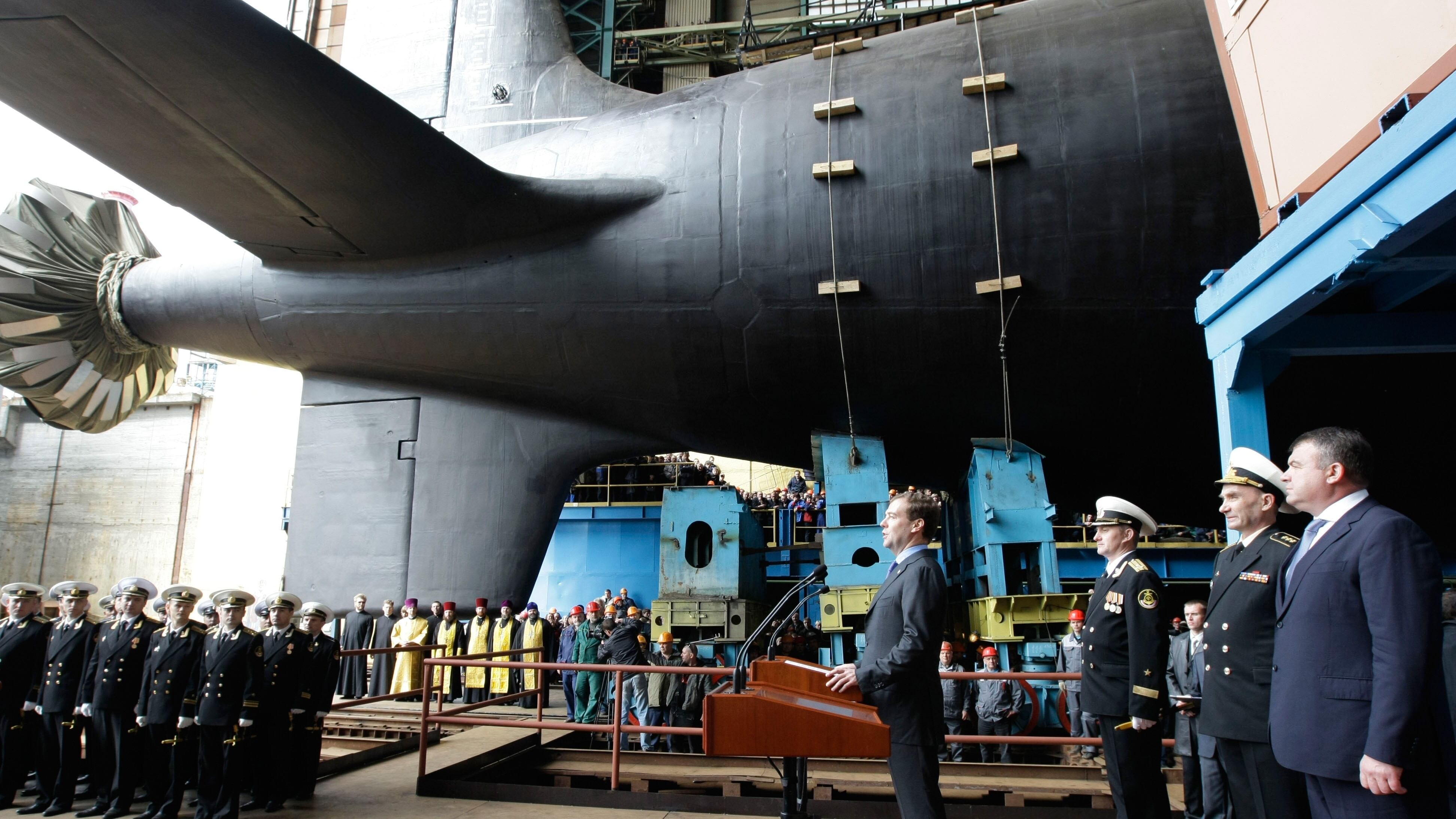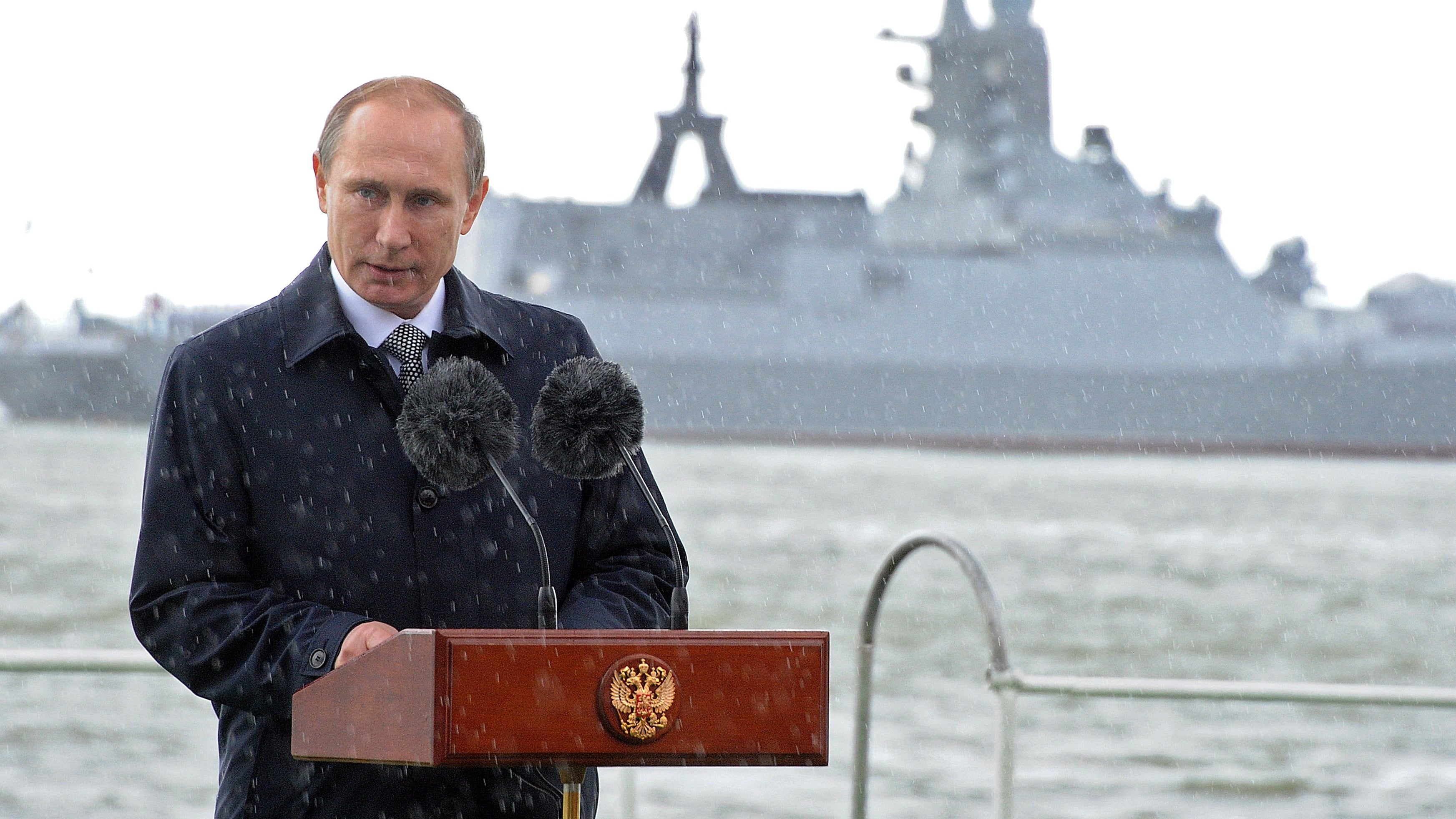LONDON — Britain’s top military officer has warned that a modernized Russian Navy poses a threat to the undersea fiber-optic cable networks that carry much of the world’s communications.
Air Chief Marshal Stuart Peach, the chief of the Defence Staff, said the vulnerability of the cables to severing by the Russians posed a potentially “catastrophic“ economic threat.
Peach told the audience at the Royal United Services Institute in London, England, on Dec. 14 that the threat posed by a Russian Navy modernized with nuclear and conventional submarines and ships means there is a “new risk to our way of life.”
“In addition to new ships and submarines, Russia continues to perfect unconventional capabilities and information warfare. Therefore, we must continue to develop our maritime forces with our allies to match Russian fleet modernization,” said Peach, who will give up his job as Britain’s top military commander next year to become chairman of the NATO Military Committee.
The plea for greater resources to combat the growing threat comes two weeks after Policy Exchange ― a British right-of-center think tank ― flagged the vulnerability of the undersea cable networks in a report on the subject.
RELATED

Policy Exchange reckons 97 percent of global communications and $10 trillion in daily financial transactions are transmitted not by satellite but by more than 545,000 miles of cables lying deep beneath the oceans.
Rishi Sunak, a Conservative parliamentarian and author of the report, said the cables are “inadequately protected and highly vulnerable to attack at sea and on land by hostile states or terrorists.”
Britain and NATO must ensure their maritime resources are adequate to deal with this new threat to security, Sunak said, adding that the government should work with private communications companies to install more backup dark cables ― cables laid for use in exceptional circumstances ― and improve monitoring at sea.
RELATED

In the report, retired U.S. Navy Adm. James Stavridis, who formerly served as NATO supreme allied commander, said internet cables could be a tempting target for the Russians and others.
“I have seen the Atlantic transition from being a theater characterized by near-complete NATO supremacy to a space that Russia is actively contesting through a resurgent naval doctrine. If the relative weakness of the Russian position makes a conventional conflict with NATO unlikely, it also raises the appeal for them of asymmetric targets like fiber-optic cables. We should prepare for increased maritime hybrid activity, not just from Russia, but also from China and Iran,” he said.
In 2015, U.S. media reported intelligence and military officials saying Russian ships and submarines were aggressively operating near undersea cables in the Atlantic and elsewhere.
However, this is not entirely a one-sided affair. The Russian activity echoes an operation mounted by the U.S. Navy in the 1970s when an especially adapted nuclear submarine, USN Halibut, for months tapped Soviet communications cables laying in the Sea of Okhotsk, north of Japan.
Andrew Chuter is the United Kingdom correspondent for Defense News.






